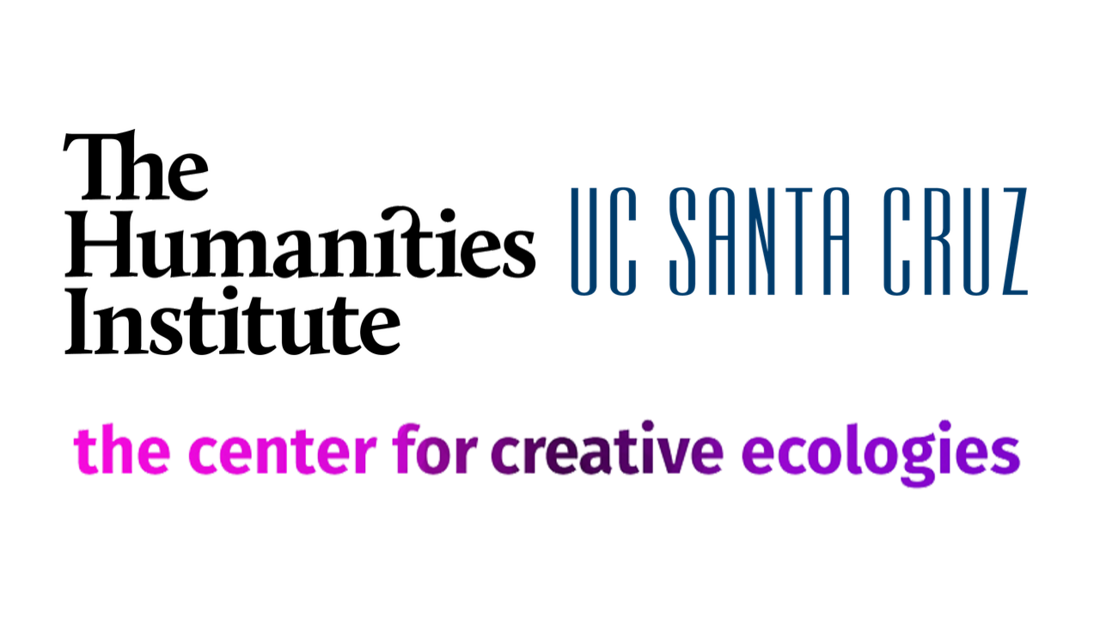September 23, 2019–July 31, 2020
1156 High Street
Santa Cruz, California 95064
United States
There is widespread consensus that we are living at the end—of democracy, of liberalism, of capitalism, of a cool planet, of the Holocene, of civilization as we know it. Catastrophic environmental breakdown, mass species extinction, financial collapse, global nuclear war, apocalyptic populism, racist and sexist division—the diagnoses are seemingly endless, prompting multiple questions: What hopes for survival? How can we imagine the unimaginable? Who is the collective “we”? And what will life look like beyond the many ends portrayed in dystopian pop-culture and sci-fi, Indigenous anti-colonial diagnoses, and post-anthropocentric philosophies?
Addressing this urgent, multifarious, and world-historical subject that centers interlinked sociopolitical, techno-economic, and environmental crises, this year-long seminar invites some of the world’s leading speculative thinkers and cultural practitioners to UC Santa Cruz to deliver public lectures considering such urgent questions. These will punctuate an expansive research project that includes art exhibitions (at the Museum of Art and History in Santa Cruz, March 6–June 21, 2020; the Mary Porter Sesnon Gallery, UC Santa Cruz, April 2–May 9, 2020; and more), a Radical Futurisms film screening series, and coordinated postdoctoral and PhD-level scholarship.
In the wake of multiple worlds that have already ended, we are already living in a post-apocalyptic present following countless genocides and colonialisms. With reference to traditions of the oppressed, this research project addresses competing urgencies and future threats informed by past and present injustices. In doing so, it brings into focus multiple radical futurisms—from new articulations of Afrofuturism to Indigenous decolonial imaginaries, from post-capitalist utopias to visions of multispecies flourishing—as critical resources not only for imagining an emancipatory not-yet beyond the nihilism and negativity of the present, but also as necessary guideposts for cultivating a coming world of justice and equality.
Keynote presentations by Keeanga-Yamahtta Taylor, award-winning author of From #BlackLivesMatter to Black Liberation; Déborah Danowski, co-author of the speculative analysis of our dystopian present, The Ends of the World; Eduardo Viveiros de Castro, Brazilian anthropologist and author of Cannibal Metaphysics; Amitav Ghosh, award-winning fiction writer and author of The Great Derangement: Climate Change and the Unthinkable; Nick Estes (Lower Brule Sioux), co-founder of Red Nation and author of Our History Is the Future: Standing Rock Versus the Dakota Access Pipeline, and the Long Tradition of Indigenous Resistance; Melanie Yazzie (Bilagáana/Diné), Red Nation member and co-editor of Decolonization: Indigeneity, Education and Society; and artist-activists Amin Husain and Nitasha Dhillon of MTL / Decolonize This Place, an action-oriented movement centering Indigenous struggle, Black liberation, free Palestine, global wage workers and de-gentrification.
Artists, seminar guests, and moderators include Arthur Jafa; Martine Syms; Donna Haraway; Laurie Palmer; Rasquache Collective (Federico Cuatlacuatl, Ann Alstatt, Karina Monroy, Kyle Lane-McKinley); Amy Balkin; Teddy Cruz + Fonna Forman; Krista Franklin; Allora & Calzadilla; Future Farmers; Super Futures Haunt Qollective; Helen and Newton Harrison; Black Quantum Futurism; and hypeburbler collective.
Project Director: T. J. Demos, Professor, History of Art and Visual Culture, Director of the Center for Creative Ecologies, UC Santa Cruz.
Mellon Postdoc Fellow: Hannah Martin; Mellon PhD Fellows: Chessa Adsit-Morris and Isabelle Carbonelle.
Co-organizers: Hunter Bivens, Associate Professor of Literature and German Studies, UC Santa Cruz; Mayanthi Fernando, Associate Professor of Anthropology, UC Santa Cruz; Deborah Gould, Associate Professor of Sociology, UC Santa Cruz; and Matt O’Hara, Professor, History, UC Santa Cruz.
Institutional partners: Center for Creative Ecologies, The Humanities Institute, Mary Porter Sesnon Gallery, Institute of the Arts and Sciences, and the Arts Division, of UC Santa Cruz; Santa Cruz Museum of Art and History; Indexical; SubRosa; Little Giant Collective; Felix Kulpa Gallery. Funded by a grant from The Andrew W. Mellon Foundation Sawyer Seminar on the Comparative Study of Cultures.
For more information visit beyond.ucsc.edu. All events are free and open to the public.


